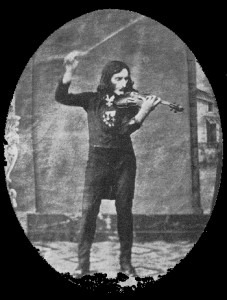
Hector Berlioz
I heard a performance of Hector Berlioz’ Harold in Italy the other evening. Perfectly competent orchestra, perfectly competent viola soloist, perfectly competent conductor. All the notes were played. Check. But, in the end the experience was very unsatisfactory because, to my ears, although the viola soloist played what Berlioz wrote, I don’t think he played what Berlioz thought the audience would be hearing.
Harold in Italy, Op. 16
Some back history: Niccolo Paganini, the demon violinist, bought a new toy: a Stradivarius viola. To properly show off the instrument, he commissioned Berlioz to write him a viola concerto. What he received was Harold in Italy, a symphony with viola obbligato. Paganini looked at the score, particularly the slow movement, didn’t see enough air time for him, and declined the work. He wanted a work where he would be the center of the attention, not the extra voice looking for attention.

Niccolo Paganini
The bad news, of course, is that we wouldn’t dare to do this. We’ve wrapped the score and the composer up in such cotton wool and handle them as such precious gems that the audience, in the end, isn’t getting what it paid for.
We should encourage more performers to look at the history of a piece and see where they have a role. It’s not easy to add your own notes to those that Berlioz intended for Paganini, but that’s the point where you start to show off your own private virtuosic turns. Start with a cadenza – then take on a figured bass – now show Harold all that he should know about Italy!



